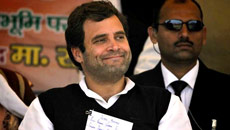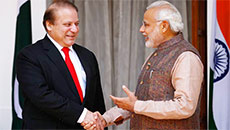Britain is witnessing one of the biggest strikes by public sector employees in three years with up to one million people expected to take to the streets to protest pay freeze and pension changes as part of austerity measures, media reports said Thursday.
Union leaders said more than 50 marches and rallies were organised across England and Wales Thursday, the Guardian reported.
Health workers and civil servants are joining teachers in the mass demonstration against the austerity measures.
Dave Prentis, general secretary of Unison, representing many of the country's lowest paid workers, told the BBC: "Something has got to give -- enough is enough.
"We've got 300,000 now on zero-hour contracts, we've got a million workers in local government earning below the living wage that (Conservative Party leader) Boris Johnson and others talk about, and people are saying: 'We cannot go through another three years of this pay restraint'."
The National Union of Teachers (NUT) says more than 20,000 teachers could take part with nationwide rallies and pickets planned for towns and cities ranging from Cambridge, Leicester, Swansea, Torquay and the Isle of Wight, the Independent reported.
The British government implemented a public sector pay freeze for two years from 2010-12 and has subsequently imposed a one percent pay cap, meaning some of the lowest paid workers have seen their income fall in real terms for more than four years.
The result of a Trades Union Congress research Wednesday showed that since the coalition government led by Prime Minister David Cameron took office, local government workers, teachers, firefighters, civil servants and other public servants were on average 2,245 pounds worse off in real terms.
However, the government has downplayed the extent of the strike.
"The vast majority of dedicated public sector workers did not vote for today's action, and early indications are that most are turning up for work as usual. We have rigorous contingency plans in place, services appear to be working well and we expect most schools and job centres to open their doors," a Cabinet Office spokesperson was quoted as saying by the Guardian.





